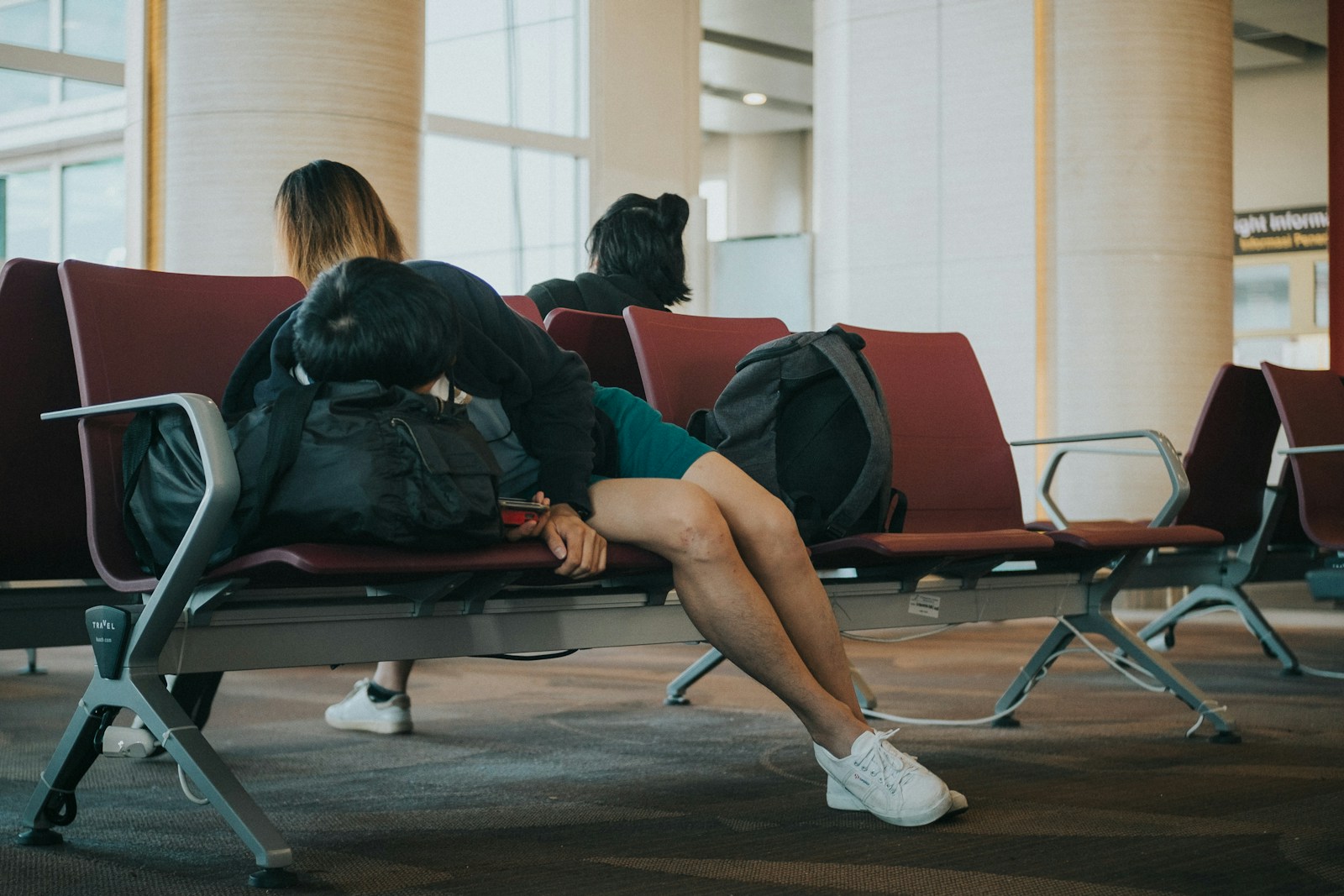Jet lag is a temporary sleep disorder that can affect anyone traveling quickly across multiple time zones. It occurs when the body's biological clock, which regulates sleep and wake cycles, becomes misaligned with the new local time of the travel destination.
The term "jet lag” emerged with the popularization of long-distance air travel in the 1960s. “Jet” refers to jet aircraft, while “lag” means delay. Therefore, “jet lag” describes the delay the body experiences when adjusting to a new time zone after a quick trip.
How Jet Lag Happens
The biological clock, or circadian rhythm, is a 24-hour cycle that regulates physiological processes in the body, including sleep. It is influenced by external factors, such as sunlight, and is controlled by a part of the brain called the suprachiasmatic nucleus.
When you travel quickly across multiple time zones, your circadian rhythm becomes out of sync with your destination's local time. For example, if you fly from New York to London, your body will still be operating on New York time even though London is five hours ahead. This results in difficulties sleeping and waking up at times appropriate to the new time zone.
Common Symptoms of Jet Lag
One of the most common symptoms of jet lag is difficulty falling asleep or staying asleep. You may feel drowsy during the day or insomnia at night.
Jet lag can cause a general feeling of tiredness and exhaustion. This is because your body is trying to function in two different time zones at the same time.
Lack of adequate sleep can affect your ability to concentrate and cognitive performance, making simple tasks more difficult to accomplish.
Changes in meal times and sleeping patterns can affect the digestive system, causing problems such as indigestion, constipation or diarrhea.
Factors that Influence Jet Lag
The severity of jet lag generally increases with the number of time zones crossed. Travel that crosses three or more time zones is more likely to cause significant symptoms of jet lag.
The direction of travel also influences jet lag. Trips east, where you “lose” hours, tend to be more challenging on the body than trips west, where you “gain” hours. This is because it is easier for the body to lengthen the day than to shorten it.
Age and health conditions can affect the severity of jet lag. Older people may have more difficulty adjusting to new time zones. Underlying health conditions, such as sleep disorders, can also worsen symptoms.
Jet Lag Prevention
Before traveling, gradually adjust your sleep schedule to align with your destination's schedule. This can help your body adapt to the new time zone more quickly.
Natural light is a powerful regulator of the circadian rhythm. Exposing yourself to daylight at your destination can help adjust your body clock more quickly. If possible, spend time outdoors during the day and avoid bright light at night.
Staying well hydrated is essential while traveling. Dehydration can worsen jet lag symptoms. Drink plenty of water and avoid alcohol and caffeine, which can dehydrate the body and affect sleep.
Eating light, healthy meals at regular times can help synchronize your body clock with the new time zone. Avoid heavy and fatty meals, which can make digestion and sleep difficult.
Treatments and Techniques to Relieve Jet Lag
Use of Melatonin: Melatonin is a natural hormone that regulates the sleep cycle. Taking melatonin supplements can help adjust your body clock more quickly to the new time zone. It is important to consult a doctor before using melatonin, especially if you have any pre-existing health conditions.
Light Therapies: Controlled exposure to light can help adjust your circadian rhythm. Light therapies, which involve the use of special light boxes, can be effective in minimizing jet lag symptoms. They simulate natural light and help regulate the biological clock.
Sleep and Rest Strategies: Planning periods of sleep and rest during your trip can help reduce the effects of jet lag. Try to sleep at your destination's local time and avoid long naps during the day, which can make it difficult to adapt to the new time zone.
Jet Lag in Different Types of Travelers
Business trips: Professionals who travel frequently for work may suffer more from jet lag due to constant travel and the need to stay productive. Planning your trip in advance and implementing prevention techniques can help minimize the effects.
Holiday Travel: Tourists can also be affected by jet lag, which can impact the quality of the trip. Adjusting your sleep schedule before your trip and planning light activities in the first few days can help you adapt.
Athletes and Performers: Athletes and performers who travel for competitions and performances face additional performance-related challenges. Specific techniques, such as manipulating sleep and light exposure, may be essential to maintaining high performance.
Impact of Jet Lag on Health
Short Term Effects: The immediate effects of jet lag include tiredness, irritability, difficulty concentrating and digestive problems. These symptoms can affect performance in daily activities and quality of life while traveling.
Possible Long-Term Effects: If not treated properly, chronic jet lag can lead to more serious health problems, such as long-term sleep disturbances, increased risk of cardiovascular disease, and negative impacts on mental health. It's important to proactively address jet lag to avoid these problems.
Studies and Research on Jet Lag
Recent researches: Recent studies have explored several approaches to minimizing jet lag, including new forms of light therapy, the use of dietary supplements, and the influence of genetic factors on jet lag. This research is helping to develop more effective methods for dealing with jet lag.
Future Study Directions: Future areas of research include analyzing the effects of jet lag in different populations, developing specific medications to combat the symptoms, and creating technologies that can help travelers adjust their circadian rhythms more quickly.
Conclusion
Summary of Key Points: Jet lag is a temporary sleep disorder caused by rapid travel across multiple time zones. Its symptoms include sleep problems, fatigue, difficulty concentrating and digestive problems. Prevention and treatment include adjustments to sleep schedule, exposure to natural light, adequate hydration, and rest strategies.
Final Tips for Travelers: To minimize the impact of jet lag, plan your trip in advance, gradually adjust your sleep schedule, stay hydrated, and utilize techniques like light therapy and melatonin supplements as needed. These strategies can help make your trip more comfortable and productive.









